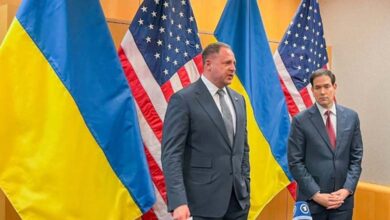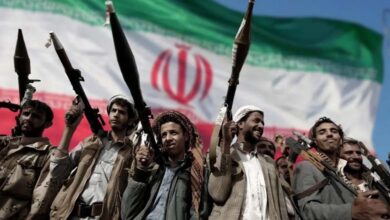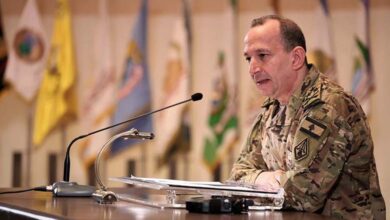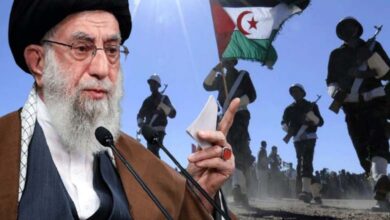French and German Conditions for Supporting the New Syrian Leadership
The French Foreign Minister urges the new Syrian administration to reach a political solution with the Kurds.
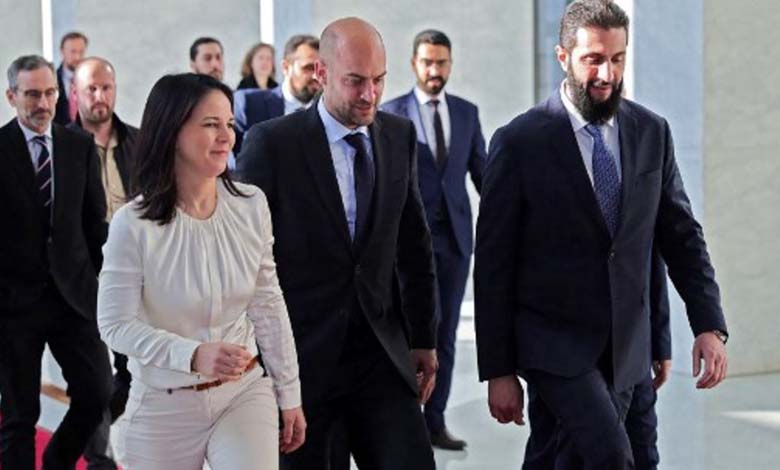
French Foreign Minister Jean-Noël Barrot and his German counterpart Annalena Baerbock emphasized on Friday the need for a peaceful and inclusive power transition in Syria. During their first visit to Damascus since the fall of President Bashar al-Assad, they met with the new Syrian leader, Ahmed Al-Char’.
-
Bashar Al-Assad: Details of the Final Days in Syria
-
Observatory: Russia Transferred Syrian Officers to a Base in North Africa
Al-Char’ welcomed the ministers at the People’s Palace in Damascus during their visit mandated by the European Union.
Jean-Noël Barrot urged the new Syrian administration to find a “political solution” with the Kurds, who control vast territories in the northeast of the country.
During a meeting with representatives of Syrian civil society, Barrot stated: “A political solution must be reached with the Kurds, France’s allies, so that they are fully integrated into the ongoing political process.”
-
“Bashar al-Assad’s Fall: The Map of Armed Groups Under the Banner of ‘Hay’at Tahrir al-Sham’”
-
Turkey is preparing to send a new lot of Syrian mercenaries to Libya
Baerbock urged Syrian authorities to avoid establishing an Islamist government, stressing that “Europe will support Syria during the transition period, but will not fund new Islamist institutions.” She added that this aligns with European security interests and the concerns expressed by many Syrians in Germany and the region.
In a statement released before arriving in Damascus, the German Foreign Minister said: “My visit today, with my French counterpart and on behalf of the European Union, sends a clear message to the Syrians: a new political beginning between Europe and Syria, between Germany and Syria, is possible.”
-
British Newspaper Reveals Attempt to assassinate al-Assad through Poisoning
-
Russia and Iran expressed their concerns about Syrian and Libyan fighters in Nagorno-Karabakh
She continued: “We extend this hand, but with clear expectations for the new leadership.”
Baerbock also emphasized Europe’s support for peaceful transition, reconciliation, and reconstruction while noting that Hayat Tahrir al-Sham would be judged by its actions despite existing doubts.
EU Foreign Policy Chief Kaja Kallas wrote on X: “Today, Barrot and Baerbock are in Damascus, representing the European Union and acting on my behalf.”
-
Turkey and Qatar Compete to Reap the Benefits of al-Assad’s Fall
-
France Fights ISIS in Syria: Strikes on “Specific Targets”
She added: “Our message to the new Syrian leadership: respecting the principles agreed upon with regional actors and ensuring the protection of all civilians and minorities is crucial.”
The French minister also mentioned a “near return” of his country’s diplomatic mission to Damascus.
Barrot wrote on X: “France and Germany stand by the Syrians, in all their diversity.”
-
More than 7,000 Syrians in Jordan return to their country after al-Assad’s fall
-
Key Leaders of the “al-Assad Regime”: Where Are They Now?
The two ministers visited Saydnaya prison, a symbol of repression under Bashar al-Assad’s regime.
Jean-Noël Barrot began his visit by meeting with spiritual leaders of Christian communities, concerned about the potential rise of Islamist governance.
Meanwhile, Al-Char’ announced plans to hold a national dialogue conference, without specifying its date or participants, while noting that new elections might take up to four years.






